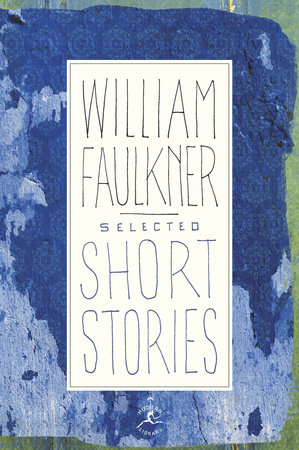
Selected Short Stories
William Faulkner
Ebook
April 20, 2011 | ISBN 9780307793560
AmazonApple BooksBarnes & NobleBooks A MillionGoogle Play StoreKobo
Hardcover
May 18, 1993 | ISBN 9780679424789
AmazonBarnes & NobleBooks A MillionBookshop.orgHudson BooksellersPowell'sTargetWalmart
About the Book
From the Modern Library’s new set of beautifully repackaged hardcover classics by William Faulkner—also available are Snopes, As I Lay Dying, The Sound and the Fury, Light in August, and Absalom, Absalom!
William Faulkner was a master of the short story. Most of the pieces in this collection are drawn from the greatest period in his writing life, the fifteen or so years beginning in 1929, when he published The Sound and the Fury. They explore many of the themes found in the novels and feature characters of small-town Mississippi life that are uniquely Faulkner’s. In “A Rose for Emily,” the first of his stories to appear in a national magazine, a straightforward, neighborly narrator relates a tale of love, betrayal, and murder. The vicious family of the Snopes trilogy turns up in “Barn Burning,” about a son’s response to the activities of his arsonist father. And Jason and Caddy Compson, two other inhabitants of Faulkner’s mythical Yoknapatawpha County, are witnesses to the terrorizing of a pregnant black laundress in “That Evening Sun.” These and the other stories gathered here attest to the fact that Faulkner is, as Ralph Ellison so aptly noted, “the greatest artist the South has produced.”
Including these stories:
“Barn Burning”
“Two Soldiers”
“A Rose for Emily”
“Dry September”
“That Evening Sun”
“Red Leaves”
“Lo!”
“Turnabout”
“Honor”
“There Was a Queen”
“Mountain Victory”
“Beyond”
“Race at Morning”


